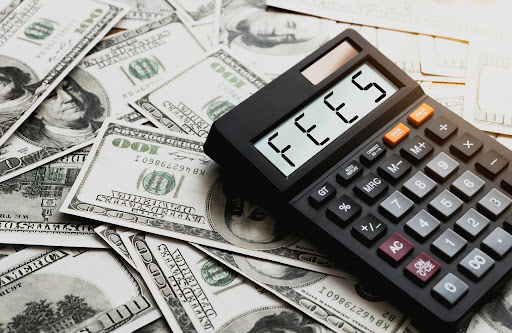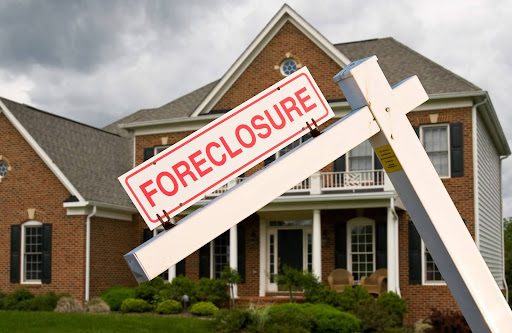
Living in a condominium can be beneficial in many ways. Condominiums often have a wider variety of amenities like gyms, co-working spaces, and rooftops. Some condos even come with a mix of residential and commercial properties, offering more convenience to residents. However, the average condo association fees are typically higher than your regular HOA.
What Do Condo Association Fees Pay For?
Buying and owning a home is an important milestone in any person’s life. However, the cost of the property is not the only consideration. Potential buyers should also consider the cost of the community’s association fees. What are these fees for?
Condo fees typically cover the cost of maintaining the following:
- Landscaping
- Lobbies
- Hallways
- Elevators
- Staircases
- Patios
- Tennis courts
- Swimming pools
- Clubhouses
- Recreational facilities
In addition, many condominium associations hire staff to keep the grounds clean and well-maintained. While homeowners associations can get by hiring occasional vendors, in-house staff are almost essential for condominiums.
Condo associations often include shared utilities in their association fees. Multi-unit buildings often require air conditioning, heating, and hot water. Some communities also provide garbage, sewage, and water services. Higher-end neighborhoods also offer internet and cable television.
Finally, a part of the condo association fees are allocated toward the reserves. The reserve fund acts as an emergency fund for the community. It’s a long-term account that collects money for major replacements, repairs, and maintenance costs. For example, it can pay for a damaged roof or help replace an elevator.
A lack of ample reserves leads to special assessments. These are one-time fees charged to cover the cost of surprise expenses (e.g., when a storm hits and damages HOA property). They’re useful in a pinch but are often financially burdensome for the residents.
Why are Condo Fees Different?
HOAs and condo associations both charge assessments for upkeep. However, there are differences between condo fees vs HOA fees. This is because the common areas of HOAs and condo associations are different. HOAs have shared roads, sidewalks, and amenities. Meanwhile, condominiums share hallways, elevators, stairs, and lobbies.
In addition, homeowners’ maintenance duties are different. All condo owners need to pay for repairing the whole building and all common elements, including shared piping, electrical systems, and HVAC systems. Meanwhile, homeowners maintain their own properties. The association does not cover the cost of keeping people’s homes.
For these reasons, condo fees are usually higher than HOA fees. There’s much more to maintain ,and the residents share more facilities and infrastructure than standard single-family homes or townhouses.
How Much are Average Condo Association Fees?
What are typical HOA fees for a condo in California? The average condo association fees in the U.S. cost about $300-$400 a month. Typical condo association fees in California are similar in range. However, it may be higher or lower depending on the city. It may even cost as much as $1,000 monthly. It also depends on factors like size, location, amenities, and services.
Generally, more luxurious condominiums with high-end amenities or services charge a higher monthly fee. The same is true for larger condominium communities and those with more facilities. It’s also important to consider the location and accessibility. Condominiums with higher property values in more dense urban areas charge higher fees overall.
In addition, property owners or potential buyers should consider the association’s overall finances. Communities with better financial management can keep costs down. However, those without enough reserves may charge a higher condo association fee or levy special assessments for unexpected expenditures.
Why are Condo Fees Important?
Condo fees are the lifeblood of a condo association. Condominiums may all but crumble without these assessments. This is because condominium associations need a lot of money for maintenance.
If a condo association lacks funds, several things could happen. Firstly, upkeep could fall by the wayside. This means the hallways, staircases, and lobbies might be untidy and prone to damage. The elevators, electricity, plumbing, and sewage may stop working and cause residents inconvenience.
In addition, the condo association might make unwise financial decisions just to cover the costs. The board might cut financial corners by skipping certain cleaning and maintenance tasks. They might also forego insurance to save money. As a result, the condo might become uninhabitable or unsafe to live in.
Furthermore, the board may tap into the reserve funds to cover operations. This is not ideal as the reserves are intended for major replacements and repairs. If the board uses too much of the reserve funds, there won’t be enough for rainy days. The HOA will be vulnerable during natural disasters or emergencies.
Finally, the association may resort to levying special assessments. This means the residents will have to pay even more money just to manage or maintain the condominium. It’s unpopular among unit owners because condo fees are already quite high. Property owners won’t be happy about paying hundreds (or even thousands) of dollars more on top of HOA fees.
Can Condo Associations in California Raise Fees?
Condo associations are typically allowed to raise annual fees. However, there are certain restrictions imposed by California law. According to the Davis-Stirling Common Interest Development Act Section 5605(b), associations must obtain a majority vote of a quorum of the members at a member meeting or election if they plan to:
- Impose fees 20% greater than the regular dues for the prior fiscal year or
- Charge special assessments, which in full, go above 5% of the gross expenditures budgeted for that fiscal year
In addition, the board members must refer to the governing documents to see whether there are restrictions on assessments. Some communities may require the board to obtain a majority vote regardless of how much they raise fees.
What Happens When You Don’t Pay for Condo Fees?
Property owners are legally required to pay their association dues. If they cannot or refuse to pay their fees, several things may happen.
1. Violation Notice

When someone misses a payment, condo boards first send a violation notice. The violation letter tells the resident of their late payment, how to make their account current, and the next steps the association will take if the resident misses another deadline.
Each condo association will have different enforcement procedures. Nevertheless, most associations send the notice by email or mail.
2. Hearing
Depending on the association’s process, the board may hold a hearing with the property owner and decide how to act based on the hearing’s outcome.
3. Fines
One of the most effective ways to ensure compliance is to impose fines. The association board may charge interest or late fees on property owners who do not pay their dues on time. Fines and interest can add up quickly, especially if a resident has been delinquent for several months.
4. Suspension of Rights & Privileges
Condo associations often provide lots of perks and amenities. For instance, many will have a pool, clubhouse, gym, or co-working center. The residents can often use these for free whenever they need to.
However, if a resident becomes delinquent in their assessments, they may lose the right to use these facilities until they become current. The board uses this tactic to force compliance. On the other hand, check the governing documents as well. Some associations have strict rules about when the board can suspend the residents’ rights or privileges — or if they are allowed to at all.
5. Liens
A resident who has been delinquent for several months or years can be troublesome for the association. As a result, many association boards place liens on resident property when they become delinquent. A lien is a legal charge against the property to secure the payment of the resident’s debt.
When a lien is placed, the unit owner may have a hard time selling the unit once the debt is paid. The lien may also affect the unit owner’s credit rating. Finally, the lien could lead to a foreclosure.
6. Foreclosure

Non-payment has several consequences — including foreclosure. In other words, the association may take control of the property and sell it off to pay the unit owner’s debt. Foreclosures are often long and tedious, costly processes for both the unit owner and the association.
Granted, this is often a last resort associations use to collect debts. Nonetheless, it’s a reality many people face when the situation becomes dire. Depending on the process and situation, it may take several months to years.
Pay Your Condo Association Fees
The average condo association fees vary by region. In California, residents should expect to pay between $300 and $400 a month. These fees include upkeep, cleaning, utilities, reserves, and services. It’s essential to pay them so the community can have a more pleasant living experience.
Personalized Property Management provides premier condo association management services across Southern California. Call us now at 760-325-9500 or visit our website to request a quote!
RELATED ARTICLES:
